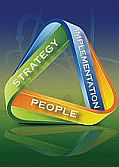Speaker
Renaud Chatelus
(European Commission Joint Research Center, Institute for Transuranium Elements, Ispra)
Description
The non-proliferation community, with its many different stakeholders, has issues with a number of terms and concepts which have different meanings, not only in different national languages but also for scientists, diplomats, engineers, law enforcement people, IAEA safeguards staff, and many others. The consequences are not only relevant for translators and seminar participants. This confusion of terms may create misunderstandings with legal, diplomatic and operational consequences. A number of terms, used because of their meaning in English are “false friends” in other languages, i.e. they are used because they sound close, but their meaning may be different. The nuances may be about the fact that they cover a narrower, broader, or slightly different concept in another national or professional language. The emblematic example is the English word control, written the same way in many languages but with different connotations. Other examples include terms which have a precise legal definition for some communities whereas other stakeholder see it as generic terms (e.g. technology, transit); terms that are not explicit but have different implicit contents related to the context like outreach or declaration; terms which are distinct in one language but translated into one word in others like specially and especially designed; terms which cover different realities for different work communities like counter-proliferation, analysis; terms which are widely used and hardly defined anywhere like dual-use; or terms which refer to a specific legal or moral reference framework which is not always explicated like illegal, legitimate. This paper will explore issues related to some of these terms used in Western languages, and argue the necessity to take into account these sometimes subtle language differences, realizing the difficulties they may create for practitioners of non-proliferation. Improvements might include revising official reference documents like glossaries or other agreed sources.
| Country or International Organization | European Commission Joint Research Centre, Institute for Transuranium Elements, Ispra |
|---|
Primary author
Renaud Chatelus
(European Commission Joint Research Center, Institute for Transuranium Elements, Ispra)
Co-authors
Andrea Viski
(European Commission Joint Research Centre, Institute for Transuranium Elements, Ispra)
Christos Charatsis
(European Commission Joint Research Centre, Institute for Transuranium Elements, Ispra)
Filippo Sevini
(European Commission Joint Research Centre, Institute for Transuranium Elements, Ispra)
Quentin Michel
(European Commission Joint Research Centre, INstitute for Transuranium element, Ispra,)
Willem Alfons Marc Janssens
(European Commission, Joint Research Centre, ITU, Nuclear Security Unit)

